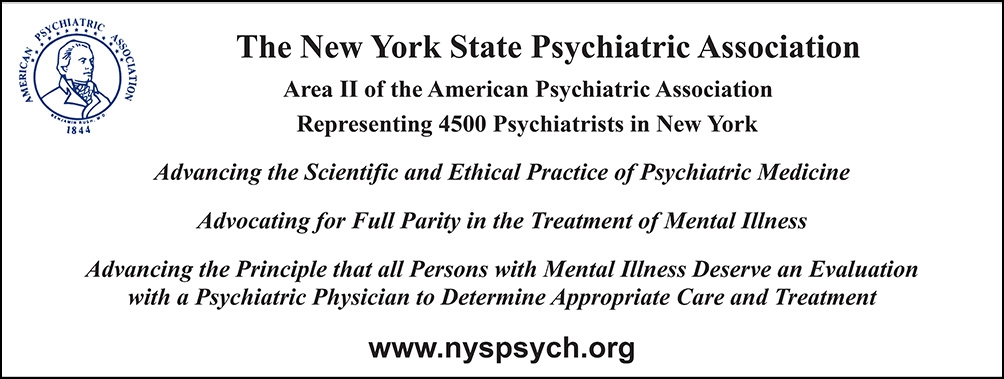The COVID-19 public health emergency has contributed to workforce crises across almost all industries, fields and professions. The behavioral health field has not been immune. Even worse, behavioral health has historically been impacted by workforce challenges, stemming from “chronic underfunding of the behavioral health safety net, historically low wages, and high case load.”1 According to a 2016 study by the federal Health Resources and Services Administration, worker shortages present a key challenge in ensuring widespread access to behavioral health programs and services.2

Rachel A. Fernbach, Esq.
In addition, a HRSA resource document on the behavioral health workforce offers a rather gloomy prognosis:
Between 2017 and 2030, the total supply of all psychiatrists is projected to decline as retirements exceed new entrants. Rapid growth in supply of psychiatric nurse practitioners and psychiatric physician assistants may help blunt the shortfall of psychiatrists, but not fully offset it. In 2030, the supply of these three types of providers will not be sufficient to provide any higher level of care than the national average in 2017, which does not fully meet need.3
A new potential wrinkle in the workforce battle is vaccine mandates – on both the federal and state level. In late August, former New York Governor Andrew Cuomo mandated COVID-19 vaccines for all workers in hospitals and other health care facilities. Then, in early September, President Biden announced new federal vaccine mandates for workers across the country. Both leaders were clearly motivated by the desire to curb new COVID-19 infections and to continue to stimulate and grow the struggling economy.
According to the Mayo Clinic, as of September 15, 2021, only 54.3% of eligible Americans had received both doses of the COVID-19 vaccine.4 It remains to be seen whether the new vaccine requirements will have an adverse impact on the already suffering behavioral health workforce numbers. Some behavioral health employers may be concerned that vaccine mandates will drive workers to leave their jobs rather than be vaccinated.
Summary of Federal Vaccine Requirements
- Private Employers with 100 or more employees: The federal Occupational Safety and Health Administration will be promulgating emergency standards that apply to all employers with 100 or more employees. Covered employers must ensure that their workforce is either fully vaccinated or require any workers who remain unvaccinated to produce a negative COVID-19 test result once a week. Employers must provide paid time off for vaccination appointments. A specific effective date has not yet been determined, but violations can result in fines for the employer of up to $14,000 per offense.
- Federal Workers: On September 10, 2021, President Biden signed an Executive Order requiring all federal executive branch workers to be vaccinated no later than November 22, 2021. There will be no test-out option, but workers will be able to receive a reasonable accommodation for limited medical and religious reasons. The same rule will apply to all contractors that do business with the federal government. The Safer Federal Workforce Task Force, comprised of the White House COVID-19 Response Team, the Office of Personnel Management and General Services Administration, is expected to issue additional guidance in the short term.
- Workers at Health Care Facilities that receive Medicare and Medicaid Funding: Over the summer, the federal Centers for Medicare and Medicaid Services (CMS) mandated COVID-19 vaccines for workers in nursing homes funded by Medicare and Medicaid, the federal health care programs. CMS will now be expanding that mandate to all federally-funded health care facilities, including hospitals and other ambulatory care settings, with no test-out option. Here in New York, this federal mandate will apply to all Medicaid funded programs under the auspice of the NYS Office of Mental Health (OMH) and the NYS Office of Addiction Services and Supports (OASAS), e.g., Article 31 and Article 32 outpatient clinics, and behavioral health services furnished by hospital outpatient departments that receive Medicare and Medicaid reimbursement. The mandate will apply to both clinical and non-clinical staff and volunteers. CMS has announced that it is developing regulations to implement this new requirement, expected in October 2021.
Summary of New York State Vaccine Mandates
In his last few weeks in office, former New York Governor Andrew Cuomo mandated COVID-19 vaccines for the state’s healthcare workforce, including staff at hospitals, nursing homes, adult care facilities, and other congregate care settings. Following the former Governor’s directive, the Public Health and Health Planning Council issued emergency regulations on August 26, 2021 to implement the new requirements, with no option for weekly testing. For personnel working in general hospitals and nursing homes, the first dose of the vaccine must be received by September 27, 2021. For personnel working in other covered facilities, such as dialysis centers, adult care facilities, hospice and home care service providers, the first dose of the vaccine must be received by October 7, 2021. The emergency regulations provide for a limited exemption based on pre-existing medical conditions, but no exemption on religious grounds.
Legal Challenges
Following President Biden’s announcement on September 9th, some Republican governors publicly condemned the mandates as overreaching and promised to challenge them in court. On September 14th, Arizona became the first state to formally oppose the federal mandates. The Attorney General of the State of Arizona announced that his office has filed a lawsuit against President Biden and his administration to challenge the vaccine mandate imposed on federal employees, federal contractors and private employers with more than 100 workers.
In addition, as reported by Reuters.com, a statement issued by the Republican National Committee indicated it “will sue the administration to protect Americans and their liberties.”5 Florida Governor Ron DeSantis has also indicated that his office will oppose the vaccine mandate to be imposed on private businesses.6
In New York, also on September 14th, a federal District Court Judge issued a temporary restraining order barring the State from enforcing its mandate against healthcare workers who claim an exemption due to their religious beliefs. The case was filed by a conservative legal organization on behalf of 17 healthcare workers who object to the vaccine on religious grounds. The State has until September 22, 2021, to oppose the plaintiff’s motion for injunctive relief.
Affected employers who generally oppose OSHA regulation may also seek to challenge the emergency standards in court, as reported by Reuters.
What Comes Next?
The high rates of vaccine hesitancy across the country make clear that more public education and outreach is needed regarding the proven efficacy and safety of the currently available COVID-19 vaccines. OMH and OASAS programs and hospital administrators may have legitimate concerns about the loss of valuable clinical and support staff in an already short-staffed and overworked workforce. Public sector behavioral health has traditionally been an underfunded field. A state and federal commitment to provide funding for more competitive wages for those working in the sector will go a long way towards staff retention and recruitment.
If the federal mandates stand up to legal challenge, every single OMH and OASAS program and hospital outpatient program in New York will be required to comply because they receive Medicare and Medicaid funding (and most likely employ more than 100 individuals). As the vaccine deadlines approach, we do not yet know if the new mandates will send health care workers looking for new opportunities in better paying industries. There is one thing we know for sure – that the need for behavioral health care and treatment is at an all-time high and ensuring access to quality mental health care and treatment remains a number one priority.
Ms. Fernbach is Deputy Director and Assistant General Counsel of the New York State Psychiatric Association and a Partner in the law firm Moritt Hock Hamroff LLP, located in Garden City, New York.
Footnotes
- Behavioral Health + Economics Network, Behavioral Health Workforce Fact Sheet. https://www.bhecon.org/wp-content/uploads/2016/09/BHECON-Behavioral-Health-Workforce-Fact-Sheet-2018.pdf
- Id.
- HRSA Fact Sheet: Behavioral Health Workforce Projections: 2017-2030. https://bhw.hrsa.gov/sites/default/files/bureau-health-workforce/data-research/bh-workforce-projections-fact-sheet.pdf
- https://www.mayoclinic.org/coronavirus-covid-19/vaccine-tracker
- https://www.reuters.com/world/us/bidens-covid-vaccine-mandate-angers-republicans-libertarians-2021-09-10/
- Id.







